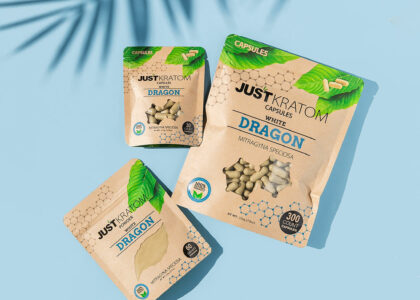Introduction
Curcumin, a natural compound found in turmeric, has gained significant attention for its potential health benefits. With its powerful antioxidant and anti-inflammatory properties, curcumin has been studied for its potential to support overall health and wellness. In this comprehensive guide, we will explore five key curcumin benefits and how they can positively impact your well-being.
Anti-Inflammatory Effects
Curcumin’s most well-known benefit is its potent anti-inflammatory properties. Chronic inflammation is believed to be a contributing factor to various diseases, including heart disease, diabetes, and cancer. Curcumin has been shown to inhibit the production of inflammatory markers in the body, potentially reducing the risk of chronic inflammation-related conditions.
Antioxidant Activity
Curcumin is a powerful antioxidant that helps neutralize harmful free radicals in the body. Free radicals are unstable molecules that can cause oxidative stress, leading to cellular damage and contributing to the development of chronic diseases. By scavenging free radicals, curcumin may help protect against oxidative stress and support cellular health.
Joint Health and Pain Relief
Curcumin has been studied for its potential benefits in managing joint health and alleviating pain associated with conditions like arthritis. Its anti-inflammatory properties may help reduce joint inflammation and improve symptoms such as joint stiffness and discomfort. Some studies have shown that curcumin supplementation can lead to a reduction in pain and improved mobility in individuals with arthritis.
Cognitive Function and Brain Health
Research suggests that curcumin may have positive effects on cognitive function and brain health. It has been shown to cross the blood-brain barrier and exhibit neuroprotective properties. Curcumin’s antioxidant and anti-inflammatory effects may help protect brain cells from damage and promote the production of brain-derived neurotrophic factor (BDNF), a protein that supports the growth and survival of neurons.
Digestive Health
Curcumin has been used traditionally to support digestive health and alleviate gastrointestinal issues. It can help stimulate the production of bile, which aids in digestion and the breakdown of fats. Additionally, curcumin may help reduce symptoms of digestive disorders such as bloating, gas, and indigestion. Its anti-inflammatory properties may also contribute to a healthier gut environment.
How to Incorporate Curcumin into Your Routine:
To harness the potential benefits of curcumin, consider the following strategies:
Turmeric Spice
One of the simplest ways to introduce curcumin into your diet is by incorporating turmeric spice into your cooking. Sprinkle turmeric onto roasted vegetables, add it to soups or stews, or use it to season meat and fish dishes. Combining turmeric with black pepper can enhance curcumin absorption in the body.
Curcumin Supplements
Curcumin supplements are available in various forms, including capsules, powders, and liquid extracts. When choosing a curcumin supplement, opt for one that contains black pepper extract (piperine) or is formulated with enhanced absorption technologies like liposomal or nanoemulsion delivery systems
Golden Milk
Golden milk is a traditional Ayurvedic beverage that combines turmeric with other warming spices like cinnamon and ginger, along with a source of fat (such as coconut oil or ghee) and a sweetener (such as honey or maple syrup). This creamy and comforting drink can be enjoyed as a soothing bedtime ritual or a midday pick-me-up.
Curcumin-Rich Foods
In addition to turmeric, certain foods are naturally rich in curcumin. Seek out dishes that incorporate ingredients like curry powder, mustard, yellow lentils, and yellow curry paste. These foods not only add flavor to your meals but also provide a natural source of curcumin.
Pairing Curcumin with Healthy Fats
Curcumin is fat-soluble, meaning it is better absorbed in the presence of dietary fats. When using turmeric or curcumin supplements, consider consuming them alongside a source of healthy fats such as avocado, olive oil, or nuts. This can enhance curcumin absorption and maximize its potential benefits.
Safety and Considerations
While curcumin is generally safe for most people when consumed in moderation, it’s important to consider the following:
Consult with a Healthcare Professional
If you have an underlying medical condition or are taking medications, consult with a healthcare professional before incorporating curcumin supplements into your routine. They can provide personalized guidance based on your specific health needs.
Avoid Excessive Dosages
While curcumin is generally safe, consuming excessively high doses may cause gastrointestinal upset or interact with certain medications. Follow the recommended dosage instructions provided by the supplement manufacturer or consult with a healthcare professional for guidance.
Quality and Purity
When choosing curcumin supplements, opt for products from reputable brands that undergo third-party testing to ensure quality and purity. Look for standardized extracts with a high curcumin content.
Conclusion
Curcumin, the active compound in turmeric, offers numerous potential health benefits. From its anti-inflammatory and antioxidant effects to its positive impact on joint health, cognitive function, digestive health, and more, curcumin is a versatile natural compound that can support overall well-being. By incorporating turmeric into your diet or using curcumin supplements, you can harness its potential benefits and promote a healthier, more vibrant lifestyle. Remember to consult with a healthcare professional before starting any new supplement regimen, especially if you have underlying health conditions or are taking medications.
- Benefits of Spirulina Supplements - March 30, 2024
- Benefits of Saw Palmetto Supplements - March 30, 2024
- Benefits of Golden Seal Supplements - March 22, 2024







![Expedition - Trail Edition [Black]](https://energizecbd.co.uk/wp-content/uploads/2024/07/Expedition-Trail-Edition-Black-420x300.webp)